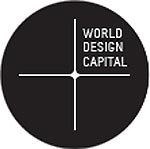Using design to solve societal problems in Cape Town

"This means that we can employ new ways of thinking to resolve the same old problems we've had for decades, such as segregation, unemployment, sanitation challenges and the effects of urbanisation," he explains.
WDC is a city promotion project that celebrates the accomplishments of cities that have used design as a tool to reinvent themselves and improve social, cultural and economic life. As part of the WDC project, Perez will identify city department plans that can be linked to and improved by design. "I see it as a once in a lifetime opportunity to take design thinking and methodology into a new space and interact with people, such as the mayor, who can really make a difference."
In Cape Town and wider South Africa, design has the potential to change communities and society for the better. However, he says that doing so would not be an overnight process, as there is need to leave a lasting legacy through the WDC. "The WDC is a just a year in a process, potentially a catalyst for the years to come."
Yearlong programme, long-term results
Winning the WDC 2014 title means a yearlong programme of design-focused events that will see creative communities across the globe turning to Cape Town for social, economic and cultural solutions. These connections are considered vital in the long-term.
"During 2014 we'll be highlighting projects that we're already moving on, such as the Violence Protection through Urban Upliftment Upgrading Initiative, transportation, Green Point Park - many fantastic, innovative projects. Nevertheless, the common thread is not legislative - rather how do we harness design thinking into a system directed by legislation? For example, there is a big drive to make the city more event-focused as a tourist attraction - how do we create internal processes which can fast track the approval of events to improve efficiency?"
These systems are in place for a good reason and he does not wish to change that. He wants to learn why people operate the way they do under constraints and see how operations can be improved upon, or use successes to improve upon other areas.
"There's a very strong systems thinking approach coming through, where I'm trying to map the system in my head, which also considers the constraints of all the people involved."
Creativity from constraints
He knows about systems thinking and using constraints to his advantage; his recently completed Executive MBA thesis at the UCT Graduate School of Business centred on the role of constraints in creativity: essentially limitations force greater creative solutions.
"Within constraints is when you really foster creativity. If you were told to make a box to contain an elephant, then the simple, obvious solution would be to make a box larger than the elephant. However, if you are told to make the box the size of a matchbox to contain the elephant, that is when creativity really starts to kick in. I believe we can apply this approach to the WDC - once we understand the constraints, we can begin to work within them, to foster creative thinking into new approaches."
He believes that Cape Town has all the right ingredients to host the best WDC ever and, if the city can harness its creativity correctly, the event will bring big changes. "On one side you have creative, divergent thinkers, who thrive on uncertainty; then you have the city operatives, who are all about optimisation, reliability and service delivery - I have to reach a middle ground between these parties, and facilitate progress.
It is likely to be a delicate process - and there may not be rapid change. There is an expectation that WDC is going to change the way the city operates immediately, but the reality is it's only a year and a half away - and in an organisation such as the City of Cape Town, where budgets are planned a year or two in advance, the chance to actually change something physical is remote. "To make a difference in the longer term, I believe we need to change thinking - and design may be the answer," he concludes.